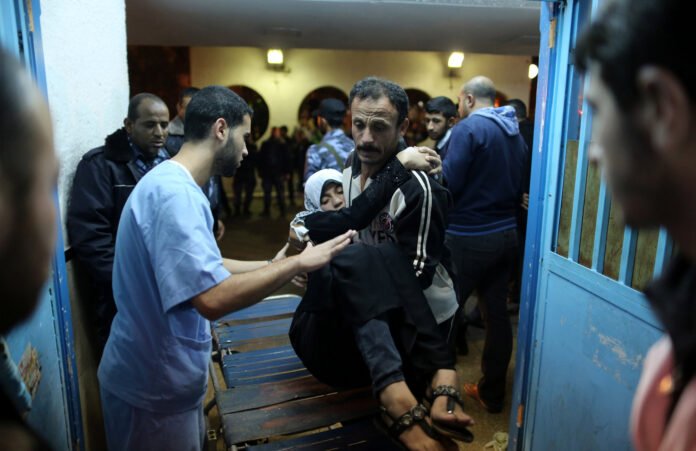In the complex and often turbulent landscape of the Israeli-Palestinian conflict, covert operations occasionally emerge as a means to thwart terrorism and ensure national security. A recent incident in the West Bank has sparked considerable attention and debate, as Israeli forces, disguised as Muslim civilians, executed a daring operation to eliminate terrorists hiding within a hospital. This clandestine maneuver, while stirring controversy, underscores the intricate challenges faced by security forces in combating extremism while navigating sensitive political and humanitarian considerations.
The operation unfolded in the early hours of the morning, as Israeli intelligence identified a group of wanted terrorists seeking refuge within a hospital compound in the West Bank. Faced with the imminent threat of violence against Israeli civilians, security forces devised a covert plan to neutralize the perpetrators while minimizing collateral damage and preserving innocent lives. To maintain the element of surprise and avoid detection, Israeli operatives disguised themselves as Muslim civilians, blending seamlessly into the local population as they infiltrated the hospital grounds.
The decision to disguise Israeli forces as Muslim civilians highlights the intricacies of conducting operations in a densely populated and politically charged environment like the West Bank. By adopting this approach, security forces sought to mitigate the risk of inciting unrest or triggering a broader escalation of violence, recognizing the sensitivities surrounding religious and cultural identity in the region. However, the use of such tactics also raises ethical questions regarding the manipulation of identity and the potential for confusion or misinterpretation among local residents.

As the operation unfolded, Israeli forces moved swiftly and decisively to apprehend the terrorists, neutralizing the threat before it could materialize into an attack on Israeli civilians. The successful outcome of the mission is a testament to the skill and professionalism of the security forces involved, as well as the meticulous planning and coordination that underpinned the operation. However, the covert nature of the operation has drawn criticism from some quarters, who argue that such tactics undermine principles of transparency and accountability in military engagements.
Moreover, the operation has reignited debates surrounding the legality and morality of conducting military operations within civilian environments, such as hospitals. While international humanitarian law prohibits the use of medical facilities for military purposes, including as bases of operation or shields from attack, the presence of terrorists within these facilities poses a complex dilemma for security forces. Balancing the imperative to neutralize threats with respect for humanitarian principles and the sanctity of medical spaces is a formidable challenge, one that underscores the inherent complexities of modern conflict.
In the aftermath of the operation, questions have emerged regarding the broader implications for Israeli-Palestinian relations and the prospects for peace in the region. While the elimination of terrorists may disrupt immediate threats to security, the use of covert tactics risks further eroding trust and exacerbating tensions between Israeli and Palestinian communities. Moreover, the incident has underscored the need for constructive dialogue and cooperation to address the root causes of extremism and violence, including underlying grievances and political grievances.
Despite these challenges, the operation serves as a reminder of the ongoing threats posed by terrorism and the imperative for robust security measures to safeguard civilian populations. As Israel continues to confront these challenges, it must remain vigilant in its efforts to protect its citizens while upholding its commitments to human rights and international law. Moreover, the incident underscores the importance of ongoing efforts to advance a negotiated resolution to the Israeli-Palestinian conflict, one that addresses the legitimate aspirations and concerns of both parties and fosters a climate of peace and reconciliation in the region.
In addition, the covert operation carried out by Israeli forces in the West Bank hospital reflects the complex and multifaceted nature of the Israeli-Palestinian conflict. While successful in neutralizing immediate security threats, the operation raises important ethical, legal, and political questions that demand careful consideration. As both sides grapple with the challenges of achieving lasting peace and security, dialogue, cooperation, and a commitment to shared values remain essential prerequisites for progress in the region.

